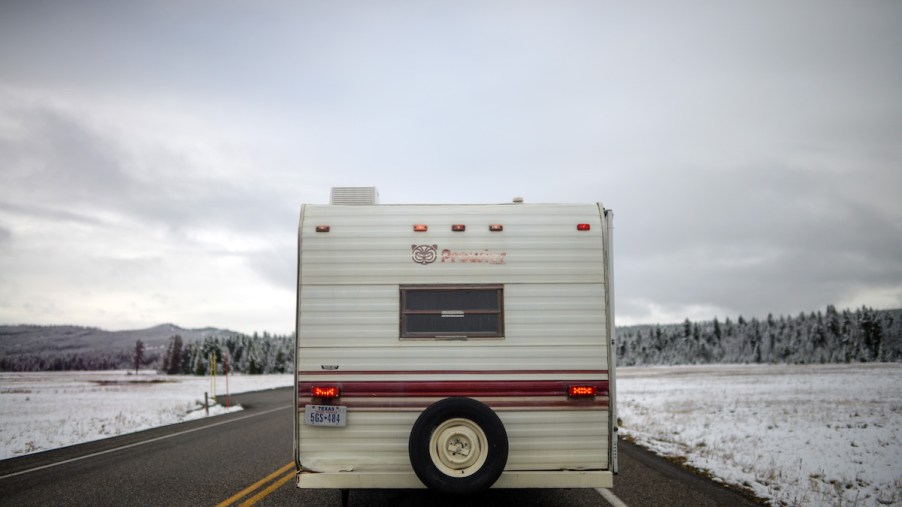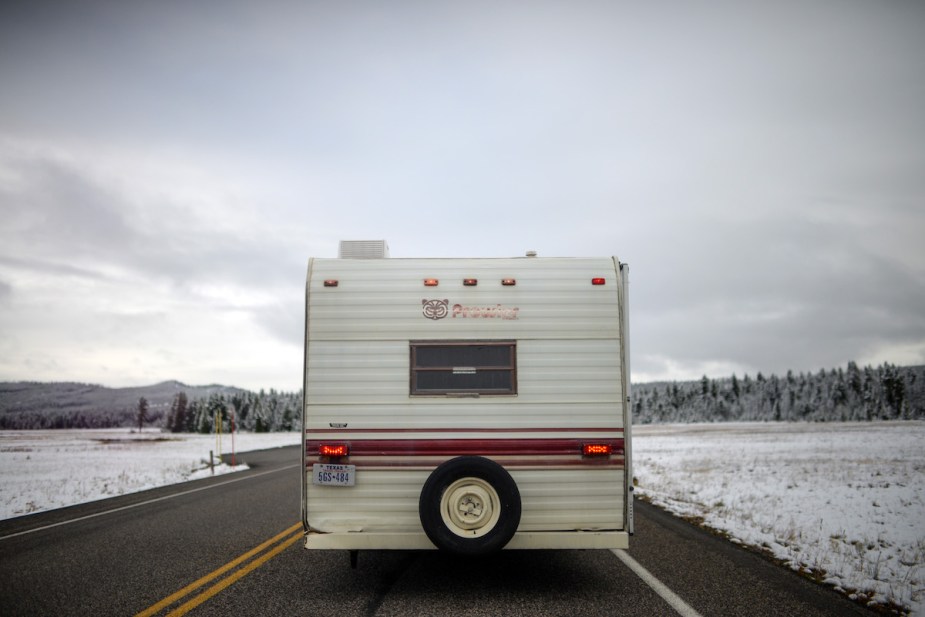
Rules You Must Know Before Parking Your RV for the Winter
So, you’ve arrived home from your last summer road trip of the year. As you unpack your rig and prepare to settle back into your day-to-day life in your non-mobile home, remember the rules about parking your RV for the winter.
Where to overwinter your RV

Some of the most complicated decisions you’ll make as a recreational vehicle owner revolve around where to park your rig. Boondocking for an impromptu summertime weekend is one thing. Reserving a campsite and setting up housekeeping for a few weeks is another. Deciding where to position your motor home for three or four long winter months comes with an entirely different set of things to consider.
If you have no winter travel plans and adequately prep your rig for hibernation, leaving it in a monitored indoor RV storage facility nearby is probably your best bet. A massive carport on your property is another viable option for overwintering your unused RV. If neither option is available, you’ll need to understand the rules regarding RV parking in your area.
Residential RV parking laws to know about
Parking an RV in front of a house is not the same as parking a car. Even if you own the house or a friend invites you to park there, it’s not safe to assume the law agrees.
Some municipalities allow anything to park anywhere at any time. However, you’ll most likely need a permit to leave your RV on a city street for any length of time, advises Drivin’ & Vibin’.
1. Zoning laws
Believe it or not, zoning laws are not in place to drive RV owners batty. According to Camper Report, cities that ban RV parking on residential streets typically do so for good reasons. Anyone wanting to park an RV for more than one night to contact the local zoning department and tell them their intentions.
RV zoning laws vary from region to region. In Las Vegas, for instance, no RV may be inhabited outside a designated trailer park. In Hubbardton, Vermont, travel trailers and RVs up to 30 feet long may be legally occupied for up to one month per year on residential streets. Some cities, such as Naples, Florida, offer RV zoning where homeowners can park an RV on their private property for as long as they like.
2. HOA regulations
Approximately half the homes in the United States are represented by a homeowners association (HOA), and many allow one night of RV parking in a driveway or on the street, says Drivin’ & Vibin’. Almost as many outright ban RV parking altogether, so be sure to check your local HOA before pulling up to the curb and engaging your parking brake.
3. Rules about dumping RV tanks
If you park your RV at your residence and own your septic system, you can probably legally empty your RV’s black water into your toilet or tank. Connected to a municipal water supply? Call your city offices before emptying your tanks. No matter where you’re parked, never dump your RV tanks into a storm drain. Doing so will earn you a hefty fine in most cities.
RV parking in winter
Should you roll down cold roads to do a bit of RV camping in winter, be sure to prep your rig beforehand. Outfitting your RV for wintertime use involves giving the plumbing system and pipes an excellent once-over to ensure their integrity. Wrap exposed pipes with foam insulation, fix dripping faucets, and close dump valves.
If you do decide to park your RV for an extended winter nap, a well-fitting cover is an investment that will pay for itself. Before you cover the RV, disconnect the battery and store it in a cool, dry place. Drain all pipes and tanks, and turn off the pumps. Be sure to select a breathable cover, so mold doesn’t build up inside your rig.


